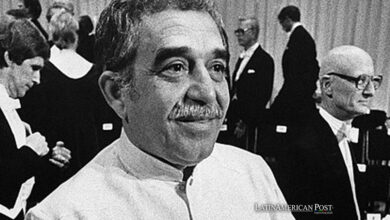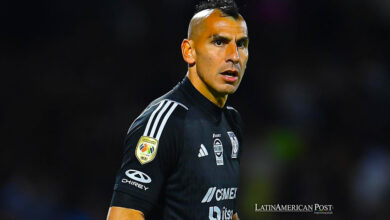Why did Guaidó lose his window of opportunity?
Listen this article
Although the leader of the Venezuelan opposition continues to arouse enthusiasm and hope for many, the strength of the principle of its movement has been diminished

Three months have passed since the swearing in of Juan Guaidó as interim president of Venezuela. This first gesture of the opposition in January of this year worked as an early blow to the government of Nicolás Maduro and served to put the focus of the world on Venezuelan politics. The emotions generated by this first act of outright opposition seem to have calmed down in recent weeks. This, although it does not necessarily mean the failure of the opposition's strategy, does mark one more episode of a pattern that can be seen in Venezuela's recent history: it is not enough for an opposition leader to carry the burden of change.
Leer en español: ¿Por qué Guaidó perdió su ventana de oportunidad?
There have been, however, catalysts that could have favored the opposition's strategy in terms of the boredom of a large part of the population of the Maduro government. The recognition of Juan Guaidó by some countries among which are some economic powers, the recent national blackouts and the lack of drinking water are factors that have infuriated a majority of the population, and that would increase the recognition and hope in the leader of the opposition. Why, then, Juan Guaidó has lost his window of opportunity?
The leader of the opposition, on the one hand, has not been able to take full advantage of the opportunity that opened last January. The possession of Nicolás Maduro was the right moment to rise against his government, and this Guaidó understood very well. The strategy of the political act of swearing three months ago as an antithesis to Maduro's possession was a brilliant move. However, the Venezuelan opposition has already sinned before political gestures without much subsequent strategy. Thus, although Juan Guaidó has not stopped ringing, it has been silenced several times by the government because Maduro still has great military support. In this way, the leader of the opposition must be a better reader of the context and situation of Venezuela, since, as can be seen in the balance of these months, he must realize that the time necessary to overthrow the government will take more than the essential and will not happen from one day to the next as he seemed to feel in the fury of his swearing in January.
In this order of ideas, both the opposition leader and the Venezuelan population must enter into a new dynamic of adjustment of expectations in which the opposition changes its strategy. The process has opened a new, slower and slower stage in which it must reevaluate some of its moves to achieve more effectiveness on the road to the change of Venezuela given that it would have been a mistake to think that this would happen at night in the morning.
You may be interested in reading: Venezuela and its second independence
Given the opposition's strategy, Nicolás Maduro, also, has proven to be very bright. His government has resisted more than usual before the opposition marches, the opinions of other countries and the fact that the president of the assembly has appointed himself as president in charge. Among the elements that generate more support to the current president and that help him to resist in power are the Armed Forces of Venezuela. The middle and high commanders of the military forces still support the current government and remain in a corporate spirit that does not seem willing to make structural changes. Given this, Juan Guaidó made his proposal for amnesty for those who would not support the regime of Nicolás Maduro but has failed to find a plan for change and political transition that satisfies the military institution that seems not to move from its place.
On the other hand, the most important card of Guaidó and the opposition strategy has been international support. Three months ago, many countries took a position in the political situation in Venezuela, which for a moment was the focus of world politics. The support of the United States and the pressure of Washington has been paramount in the strategy of Juan Guaidó. However, we should ask ourselves to what extent the opposition can rely exclusively on the support of the United States. It can be a great card, yes, but not the only one. The threats of military intervention and all the debate surrounding humanitarian aid only strengthened the detractors of Guaidó and increased the favor of Maduro among those who still support him today. Thus, this strategy has proven to be no longer the best.
What the new leader of opposition demonstrates time and time again is that the power of the social manifestation in Venezuela is far-reaching. The most hopeful moments for the resistance have always been in the recent history of Venezuela when the people have risen, as they did three months ago. The strategy must go hand in hand with the social demonstration and the marches, which have always strengthened the opposition.
In conclusion, three months after the inauguration of Juan Guaidó as president in charge, it can be ascertained that the leader of the Venezuelan opposition did not know how to read the context in which he began his strategy and must, from this, change it for a more stopped and paused in which military and people's support have more of that and are a priority before threats of foreign military intervention. Otherwise, the window will end closing.
LatinAmerican Post | Editorial Team
Translated from "¿Por qué Guaidó perdió su ventana de oportunidad?"





